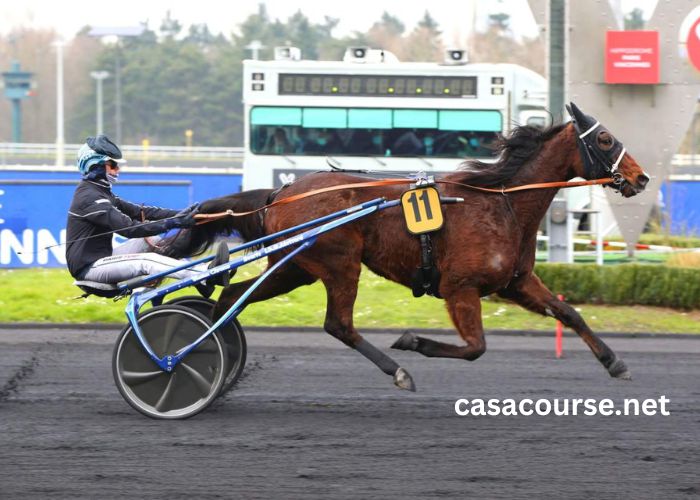Turf betting, also known as turf racing or grass racing, has been a beloved pastime for horse racing enthusiasts worldwide. Whether you’re a seasoned bettor or a newcomer to the turf, understanding the intricacies of turf betting is essential for maximizing your enjoyment and potential winnings. In this comprehensive guide, we’ll delve into the world of turf betting, covering everything from the basics of turf racing to advanced strategies for success.
Understanding Turf Racing
Turf racing refers to horse racing events that take place on grass tracks, as opposed to traditional dirt tracks. These tracks are typically lush and well-maintained, providing a unique challenge for both horses and jockeys. Understanding the nuances of turf racing is crucial for making informed betting decisions.
The Appeal of Turf Betting
Turf betting offers a distinct experience compared to other forms of horse racing. The beauty of the grass tracks, the strategy involved in turf racing, and the excitement of watching thoroughbreds navigate the course make turf betting a favorite among racing enthusiasts.
Types of Turf Bets
There are various types of bets that can be placed on turf races, each offering its own set of odds and potential payouts. These include win, place, show, exacta, trifecta, and more. Understanding the differences between these bet types is essential for crafting a winning betting strategy.
Factors to Consider in Turf Betting
Several factors can influence the outcome of a turf race, including track conditions, horse pedigree, jockey skill, and previous performance on turf tracks. Analyzing these factors can help bettors make informed decisions when placing their wagers.
Track Conditions
The condition of the turf track plays a significant role in determining the outcome of a race. Factors such as weather, moisture levels, and track maintenance can all affect how horses perform on turf tracks. Understanding how these conditions impact racing can give bettors an edge when placing their bets.
Horse Pedigree
A horse’s pedigree can provide valuable insights into its potential performance on turf tracks. Some bloodlines are known for excelling on grass surfaces, while others may struggle to adapt. Studying the pedigrees of competing horses can help bettors identify contenders with a competitive advantage.
Jockey Skill
The skill and experience of the jockey can greatly influence the outcome of a turf race. Experienced jockeys who are familiar with turf racing tactics can navigate the course more effectively and position their horses for success. Bettors should consider the jockey’s track record and reputation when assessing their chances in a race.
Previous Performance on Turf
A horse’s previous performance on turf tracks can provide valuable insights into its suitability for grass racing. Horses that have demonstrated success on turf surfaces in the past are more likely to perform well in future races. Reviewing a horse’s turf racing history can help bettors identify strong contenders.
Handicapping Turf Races
Handicapping involves analyzing various factors to assess the relative strengths and weaknesses of each horse in a race. In turf racing, handicapping may involve evaluating factors such as speed figures, class levels, pace analysis, and more. Developing effective handicapping skills is essential for identifying value bets in turf races.
Turf Betting Strategies
Several betting strategies can be employed to maximize your chances of success in turf betting. These include betting on multiple horses, focusing on specific bet types, analyzing odds movements, and more. Implementing a well-thought-out betting strategy can help bettors navigate the complexities of turf racing.
Managing Your Bankroll
Effective bankroll management is crucial for long-term success in turf betting. Setting a budget, allocating funds for each bet, and avoiding chasing losses are essential principles for responsible betting. By managing their bankroll wisely, bettors can mitigate risk and sustain their betting activities over time.
Common Mistakes to Avoid
In turf betting, as with any form of gambling, there are common mistakes that bettors should avoid. These include betting based on emotions, chasing losses, neglecting proper research, and overestimating the likelihood of certain outcomes. Being aware of these pitfalls can help bettors make more informed decisions.
Resources for Turf Bettors
Numerous resources are available to help turf bettors improve their knowledge and skills. These include racing publications, online forums, handicapping services, and more. Leveraging these resources can provide bettors with valuable insights and enhance their betting experience.
Turf Betting Etiquette
As with any form of gambling, turf betting is subject to certain etiquette guidelines. These include respecting fellow bettors, following track rules and regulations, and conducting oneself with integrity and sportsmanship. Practicing good betting etiquette helps maintain a positive and enjoyable atmosphere for all participants.
Conclusion
Turf betting offers an exhilarating blend of strategy, skill, and excitement for horse racing enthusiasts. By understanding the fundamentals of turf racing, employing effective betting strategies, and practicing responsible gambling habits, bettors can enhance their enjoyment and increase their chances of success on the turf. Whether you’re a seasoned veteran or a newcomer to the sport, the thrill of turf betting awaits.








